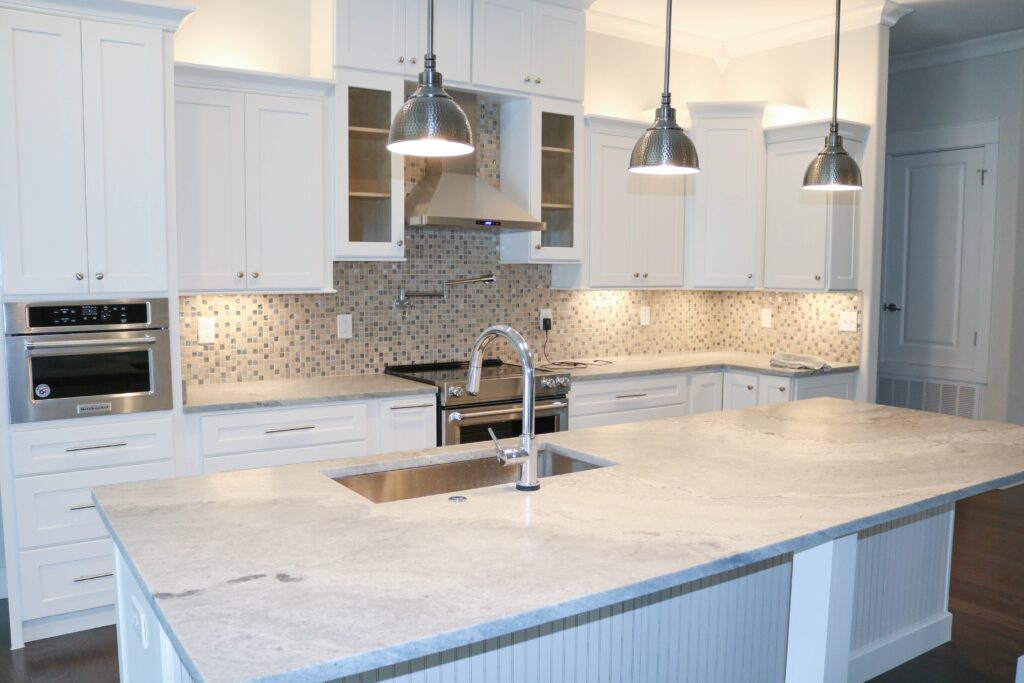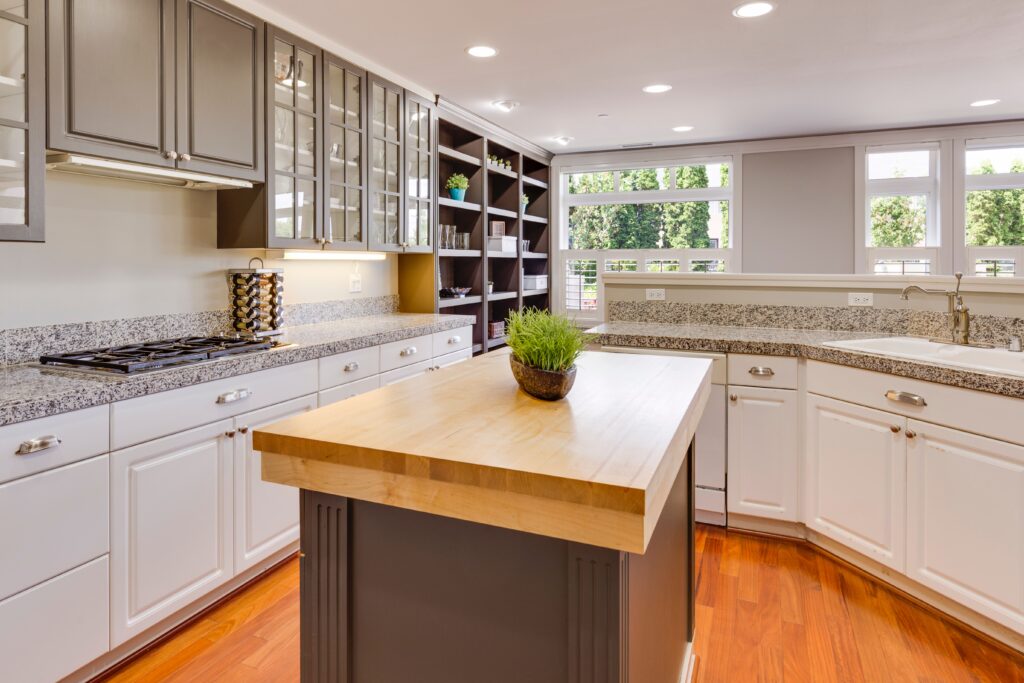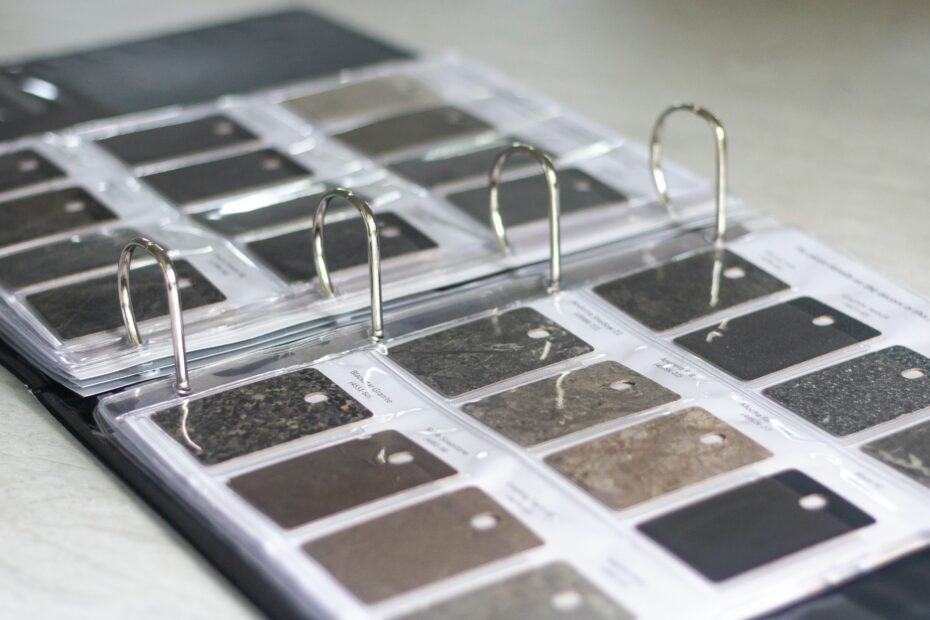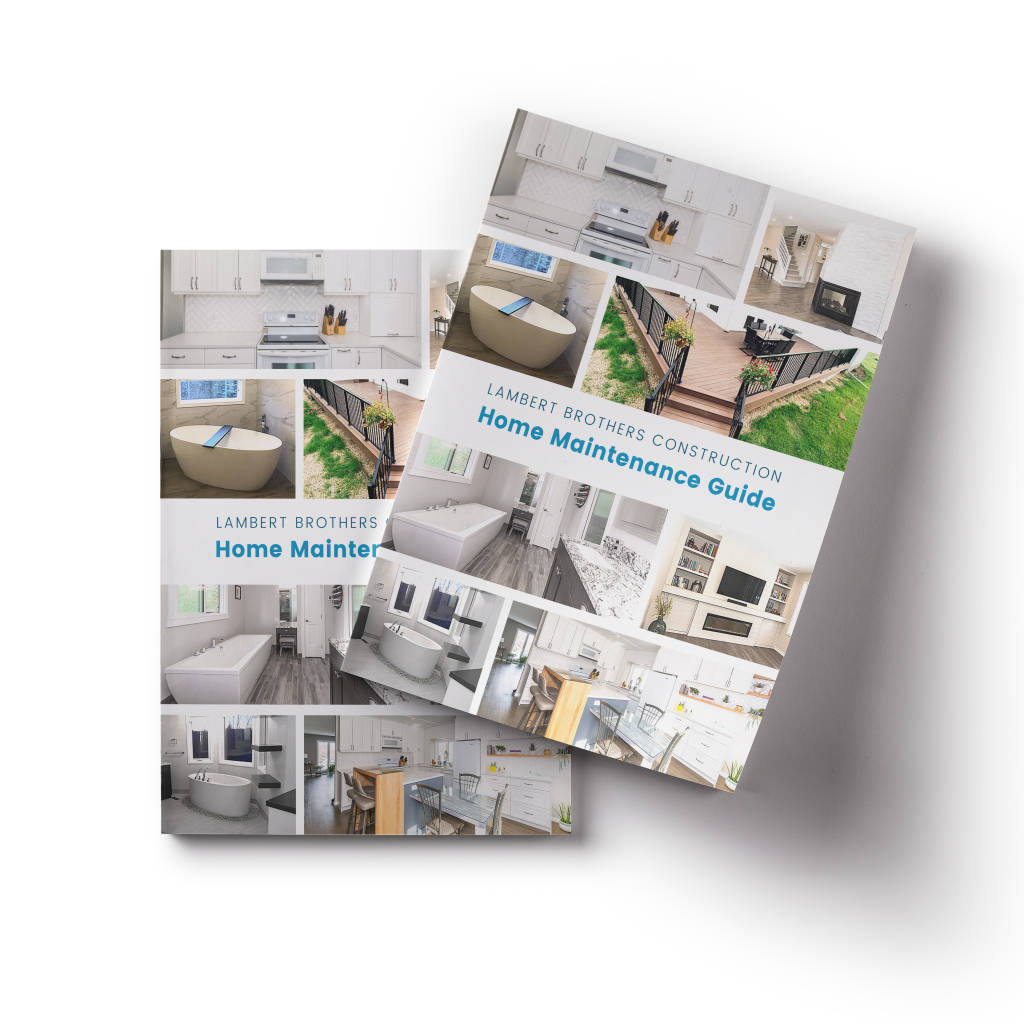Find out what types of countertops will work best for you
Choosing the right countertop for your kitchen or bathroom might sound exciting, but it can also turn stressful when trying to figure out which material will suit your tastes and your buget.
Counters need to last you for years to come and fit your style and lifestyle. Every kind of countertop has its own pros and cons in terms of look, durability, and price and today we are going to go over the most common countertop materials to help you make an informed decision.
Marble
Marble countertops have become popular in recent years and it’s a great choice for a high-end look. The natural stone can elevate your kitchen or bathroom, giving it a clean, contemporary vibe. Nothing looks as bright and fresh as a marble, and you can choose from a range of colors, including gray, brown, taupe, white, and green.
However, marble is softer than other stones, so you do need to protect it by investing in quality chopping boards to use on it. Chopping directly onto the marble will scratch the surface. Marble is also porous, so spills can stain. Make sure you clean up any spills immediately and clean the surface regularly. Despite these challenges, new sealants are making this surface less of a worry.
Marble is a low temperature and stays that way, which makes it ideal for those who do a lot of baking, as it’s the perfect surface for rolling out dough.
Marble looks high-end but does come in a range of prices, so it is accessible for most homeowners doing a renovation.

Quartz
Quartz has become the most popular choice for those who cook a lot, thanks to its durability. Quartz is not actually made of 100% quartz but is in fact a composite stone engineered from natural quartz combined with a resin binder. It’s non-porous (great for resisting stains), extremely hard, and never needs to be resealed, so it will last you an exceptionally long time.
Quartz has become more popular in recent years. Quartz countertops are a great way to get the appearance of natural stone, without worrying about high maintenance.
Granite
Granite is a natural stone with great durability. It can be bought in a range of dark and light shades, with lots of variations in the appearance of the stone. It can be cut with a lot of different edge choices, including square, beveled, S-shaped, and a half and full bullnose.
Granite doesn’t need a lot of maintenance and is easy to care for, making it a good choice for busy family homes. However, it is best to stay away from harsh cleaning products. You only need soap and water to clean it. You may need to seal it occasionally to prevent stains.
Granite is tough…it resists heat from cookware placed directly on it and won’t scratch if you chop on it. However, we always tell our customers that the best practice is to never do either of these things – even on granite. Never cut on any countertop as it will dull your knives, and never put a pot on your unprotected countertop directly from the stove as you take a chance to create a thermal shock for your stone tops.
Concrete
Concrete is a very modern choice and can work for lots of different homes, from chic farmhouses to industrial townhouses. The look of concrete is striking, and it’s a very strong surface. It’s practically indestructible.
It’s not fast to install, as it needs 28 days to dry completely, and will need to be sealed.
One risk of concrete, especially in Alberta’s climate, is that it can crack as your home settles. Although these cracks are quite simple to repair, having to do this from time to time may be more of a pain than you want from a countertop.

Butcher Block
Butcher block is a lower-priced alternative to what we’ve already covered, but they come with a lot more maintenance than marble or stone. Butcher block is made from pieces of wood that are bonded to form a larger piece. They can be made from all types of wood, including cherry, maple, oak, walnut, and teak. The best finish will depend on your decor style.
Butcher block counters are the only ones that you cut and slice directly onto, as it is essentially just one big cutting board. However, these countertops can be sealed or unsealed and if you choose to seal the wood, you can no longer prepare food directly on the surface and will need a cutting board. It is always best to use a cutting board in order to prolong the new look of your countertops, otherwise, you will see knife marks.
Unsealed butcher block countertops need to be oiled twice a year. While butcher block is very durable if oiled properly, they don’t hold up to heat or moisture very well. Wood is also porous, so you will need to deal with any spills immediately and may need to sand out deep stains like tomato sauce or red wine. The use of a food grade oil is recommended to season and protect these types of tops.
Stainless Steel
Stainless steel has always been very popular in commercial kitchens but is becoming trendy in residential kitchens too. If you love the industrial style, stainless steel works perfectly.
Stainless steel is easy to maintain if you clean it properly. The longer you leave a spill to sit, the harder it will be to clean. You can clean stainless steel with soap and water, or a product
designed specifically for the surface. It will show fingerprints and water spots, so it’s not a great choice if you have young children with sticky fingers!
Countertops are our specialty
At Lambert Brothers, we specialize in kitchen and bathroom renovations, and we have loads of experience helping our customers choose the right counters for their needs. If you are planning to replace your countertops or your entire kitchen or bathroom, give us a call and we would be happy to provide you with a free consultation and quote.

